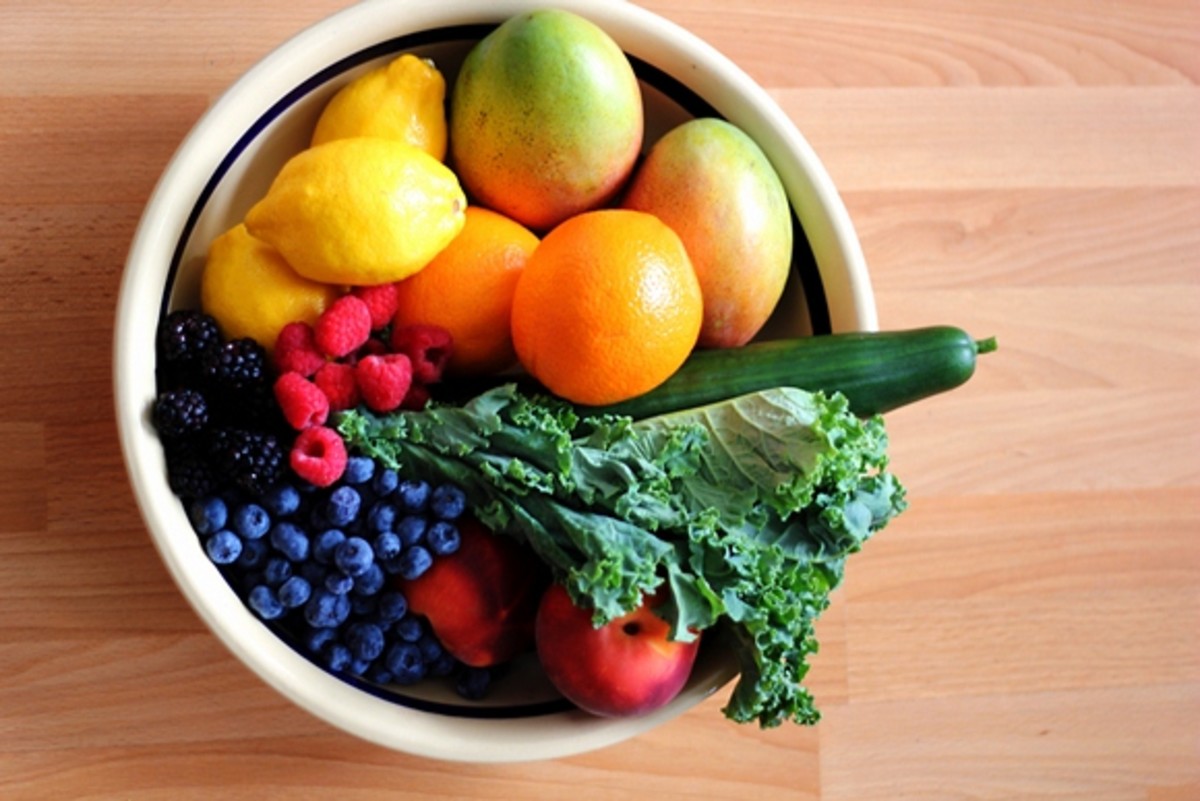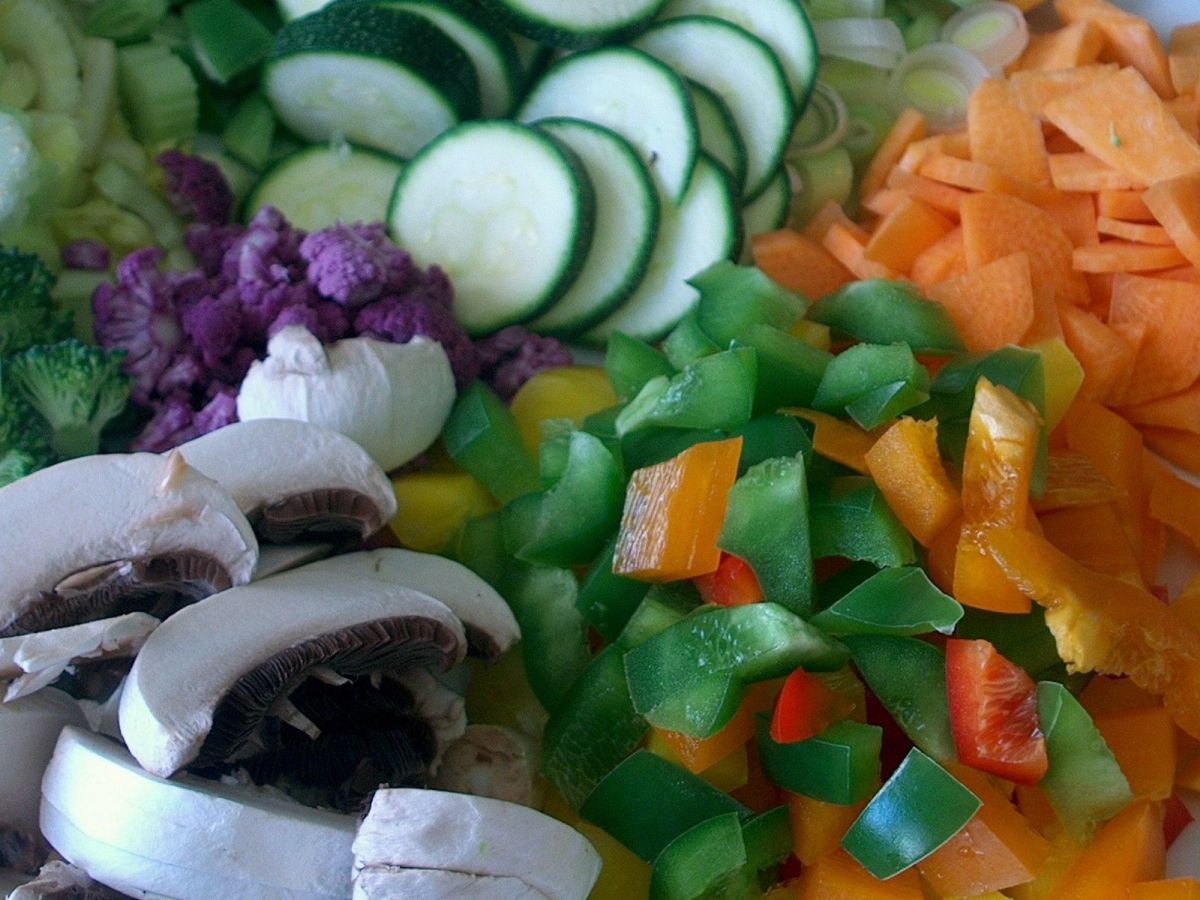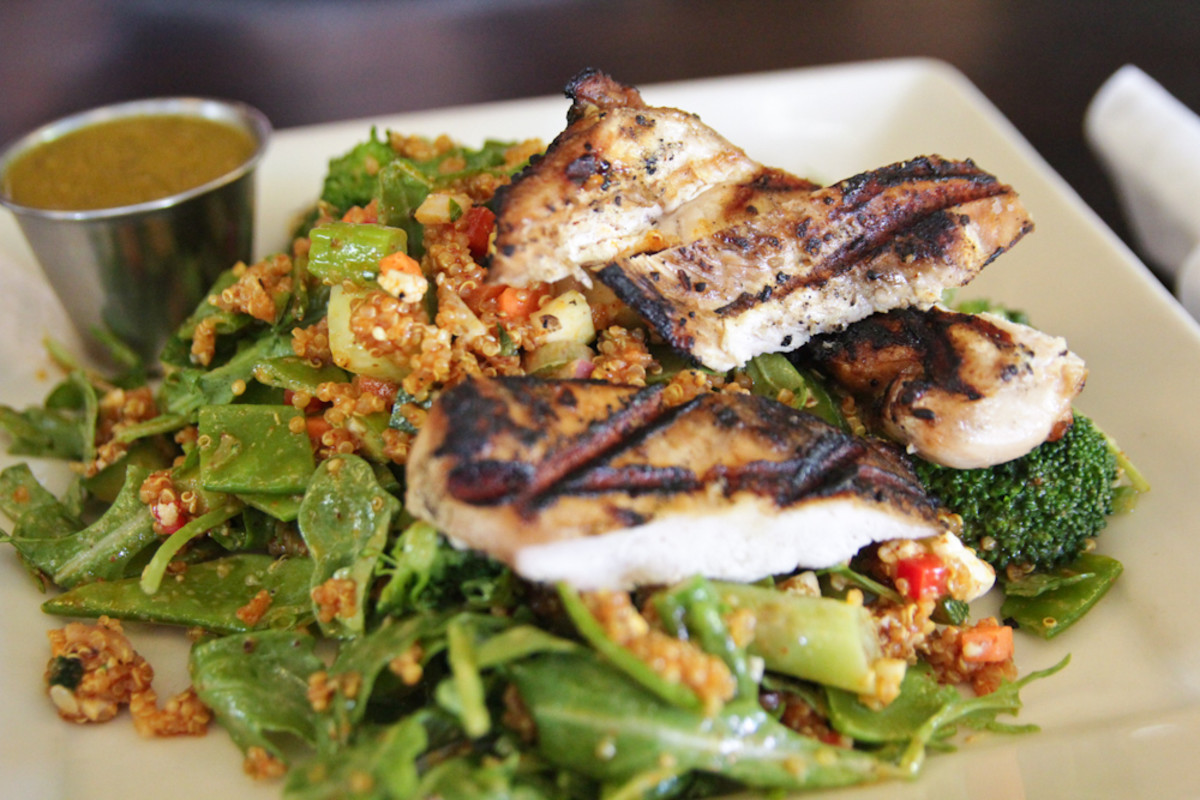- HubPages»
- Health»
- Diet & Weight Loss»
- Diet Advice & Tips
Tips on How to Stop Overeating

How to Stop Compulsive Overeating
You may find yourself overeating from time to time, inhaling dozens of chocolate chip cookies, or stuffing yourself with handful after handful of those BBQ flavored chips. How about those late night cravings that led you to an intimate session with the tub of Cherry Garcia ice cream?
That is actually normal behavior for some of us. However if this occurs on a normal basis, you may be a compulsive over-eater, or have a food addiction. The good news is there is a cure for overeating. And it starts with you.
This article will help you figure out the root of the problem, which is a mostly psychological, that may include a combination of physical, emotional craving, and chemical food addiction to food.
Read this book!
In his new book, When Food is Love, by Geneen Roth, he illustrates that people have an innate desire to leave when things get rough. People overeat to avoid the present problem- whether it is boredom, fear, loneliness, sadness, or stress. When they experience one of these emotions, survival mode kicks in with fight-or flight mechanism, a biological response to acute stress. In this case, they choose to flight- right to that bag of cheese Doritos.
What do the experts think about compulsive overeating?
In the book "The End of Overeating," by Dr. David Kessler (former Food and Drug Administration commissioner), he explains that certain foods might be cues that trigger your "overeating episodes" and may lead to and addiction to food.
Foods that are high in sugar, salt and fat are strategically created to appeal to the "primitive rewards centers of the brain, and reinforcing the addictive behavior."
Food addicts tend to have similar characteristics of alcoholics or smokers. The characteristics include:
- Being obsessed with food all the time
- Having a lack of self control when it comes to food
- Having a compulsion or binge episode with food
- Having physical cravings when you are not physically hungry
- Using food to create a sense of pleasure
- Eating food for comfort
Kessler blames it on powerful culprits: fat, sugar, salt, and brain chemistry. He claims that “hyper-palatable” foods are those loaded with sugar, salt, and fat that stimulates the senses, which provides a reward that leads many people to eat more.
Recommended reading
Health Risks of Overeating
The most common health risk associated with overeating is weight gain, which unfortunately brings on more health problems.
Let's look at the health risks of overeating:
- Risk of obesity
- Heart disease
- Diabetes
- Depression
- Indigestion
- Loss of sleep
- High blood pressure
- Memory loss
- Respiratory problems

Overeaters Anonymous
There are other options available if none of the above methods work. Consult a nutritionist, psychologist, counselor, or eating disorder specialist. You can also consider joining a support group, Overeaters Anonymous (OA) locally or online.
According to their recovery reference manual, there are 12 steps that discuss the three shortfalls: emotional compulsion, chemical addiction, and spiritual shortfall. Only you are able to decide which one comes first in the destructive cycle. The support group will guide you through the battle.
If you need professional help, contact Overeaters Anonymous and find out more information.
Step 1: Overcome emotional eating.
Emotional eating is usually a symptom of an underlying problem.
In order to understand how to overcome emotional eating, you need to understand which emotion is associated during the moment of eating. Learning how to deal with emotions will help eliminate emotional eating.
Without understanding emotions, it is difficult to understand how to cure emotional suffering. You also need to learn the difference between venting and ignoring them. For example, when you are stressed about the upcoming Algebra exam, you may find yourself studying with a bag of M&M’s next to your book bag. You are ignoring the fact that you are stressed from the exam.
When you are stressed about the deadline that your boss gave to you, you reach to that jar of candy on your office desk. You walk over to the vending machine and put a dollar in for the Snickers candy bar. You are taking your stress out on that candy, which gives you a delusional comfort feeling.
So what can you do? You need to deal with the problem!
For example, how does one deal with stress? One way is to meditate. Another way is to exercise. A third way is to learn how to not procrastinate, which avoids the need to stress in the first place! Whatever method that works for you, use it! Deal with it!
Emotions that are associated with overeating can be:
- Depression
- Boredom
- Loneliness
- Anxiety
- Stress
- Anger

Step 2: Eat the right foods.
When you feed your body with proper nutrition from vegetables and healthy grains, physical cravings will disappear. Take control of your overeating habit by controlling your mind and pairing it with nutrient-dense foods.
Eliminating processed carbohydrates and consuming whole foods from natural sources eliminates carbohydrate cravings. It can also help with weight loss.
- Learn to read labels
- Learn to shop for healthy food
- Cook your own food- learn how to prepare healthy foods.
- Be ‘awake and aware’ at restaurants- learn how to choose the healthier menu options when eating out.
- Practice intuitive eating, and listen to your body. Really listen and pay attention to what it needs. We all have different lifestyles, metabolisms, food needs, schedules, and food preference. Always ask yourself if you are “hungry” first before you feed it food.
Learn about nutrient density from Dr. Joel Fuhrman, MD
Eat the most nutrient-dense food
- USDA's Food Pyramid - learn and memorize the recommended "nutrient-dense" foods!
- Six New Healthy Eating Rules -what is a healthy eating plan?
- A Beginner's Guide To Purchasing Fruits and Vegetables in Season -tips to eating and purchasing organic fruits and vegetables that are most nutritious.
- Benefits of Chia Seeds - learn more about the amazing Super Food that the Aztec warriors used to eat for stamina and endurance!
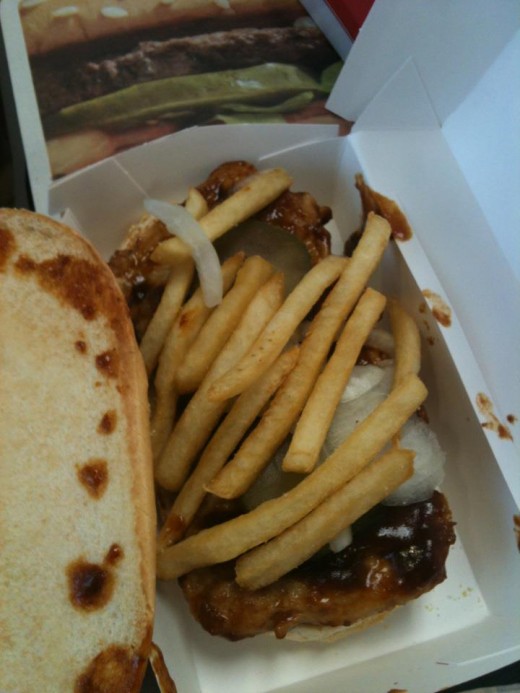
Did you know sugar transforms to a compound very similar to alcohol in the body. Wheat and starches transform to sugar in the body. Now do you understand why you can never just eat one potato chip?
Step 3. Beat the Food Industry
Don't beat yourself up after eating; beat the food industry at their own game!
Overeating isn’t simply down to just a lack of self control. Biologists found that binging on foods that are excessively high in fat, sugar, and calories can cause physiological changes to your brain and body. These changes make it hard to say no to that slice of cake, shutting down the hormonal signals that normally tell you to stop eating.
The food industry produces and markets junk food that manipulate eating behavior. They are taking advantage of our weakness! They don't care if you gain weight or have to cough up money for those hospital bills. Instead they invest in hiring excellent advertisement companies to design that nice cookie wrapper with clever marketing phrases like "Low-fat" or "all natural."
The addictive qualities of fast food and junk food make you feel better while you are eating but the effects don’t last for long. This makes you feel the urge to eat again because you want to feel better; it’s a hard cycle to beat.
When you consume sugary, fatty foods, it stimulates endorphins, which are chemicals in the brain that makes you feel good. It’s the same chemicals that are released during a passionate kiss with your lover.
The brain also releases dopamine, which “plays a major role in the brain system that is responsible for reward-driven learning.” –Wikipedia. Rewards that are responsible for increase of dopamine transmission in the brain are also highly addictive drugs such as cocaine and methamphetamine. This explains why we don’t realize why we habitually grab for the bag of chips and why we can’t control our appetite for it.
Scientific studies show that fast food and junk food causes you to be addicted to them!
- Sarah Leibowitz, a neurobiologist at Rockefeller University, has evidence stating that exposure to fatty food could turn on genes in children’s bodies so they always choose fatty foods.
- Ann Kelly, another neuroscientist from University of Wisconsin Medical School, uncovered evidence that the release of opioid in your brain tells you to keep on eating. The release of this chemical is stimulated by indulging in fatty fast food.
- Researchers at Albert Einstein College of Medicine showed that feeding rats with high saturated fat, calories, and sugar lowered the rats' ability to respond to leptin, a hormone that helps control how full you feel. They continued to overeat and gain weight.
How often do you eat fast food?
3. Keep a journal
An important step to overcome the problem of overeating is to increase your awareness. Write in a journal and keep track of everything that goes on in your day. Write down your feelings, thoughts, and the foods that you are eating.
The purpose of keeping a journal is to be able to reflect on your food choices, and the events that are happening in your life. You will start to connect the dots between your emotions and overeating. You’ll start to see how stress or sadness can encourage you to overeat.
Everyone reacts differently to certain foods and by keeping a journal, you can pinpoint exactly what is responsible for triggering your episode.

Top 10 foods that keep you full longer!
- Vegetables- kale, spinach, broccoli
- Nuts- almonds, pistachios, coconut
- High complex carbohydrates- beans, lentil, oatmeal
- Healthy starch- sweet potatoes, brown rice
- Dense soup- bean soups, chili, chicken soup
- Dips- hummus, guacamole, salsa
- Lean protein- chicken, eggs, beef, salmon
- Fruits- all berries, apples, pear, avocado, bananas
- Superfoods- chia seeds
- Dairy- yogurt, cottage cheese
4. Do not go on a diet!
Many teenagers and adults fall into the trap of fad diets that promise quick weight loss.
Fad diets don’t work! Fad diets are just a trend and trends don't last. Dieting deprives you of your favorite foods, and leaving you hungry and fighting with the inner demons in your stomach and brain. That hunger and deprivation builds up and turns into an overeating episode, which is often followed by guilt and shame. It's a vicious cycle that is hard to break.
Read books on nutrition or make an appointment to meet with a Nutritionist. You want to make a lifestyle change that will allow you to maintain a desired and healthy weight, while being able to enjoy your favorite foods. Eat nutrient-dense foods from the recommended food group.
How do you start a healthy eating lifestyle?
- Structure you meals. Eat three complete, highly nutritious meals a day. Avoid snacks in between meals. In order to successfully go through though the day without snacking on junk food, you need to eat nutritious food that will keep you sustained until the next meal. If you do have an urge for a snack, make sure you grab a healthy one, such as a dark chocolate square or a piece of fruit. Remember, pure dark chocolate will satisfy you without increasing your urge to binge.
- Drink at least 64 ounces of liquid in a day. Carry a bottle with you wherever you go and sip on either water or iced tea throughout the day. I recommend drinking Rooibos tea, a caffeine-free tea that offers numerous health benefits, as well as keeping you hydrated and curbing your appetite.
- Eat whole, natural foods. When you eat whole, natural foods, you feel more satisfied after a meal. Eating the right amount of proteins, carbohydrates, and good fats will not only nourish your body, but keep you full longer. This is the key idea to preventing an episode of overeating.
- Eat “forbidden foods” in moderation. Allow yourself to consume your favorite treat in moderation. By abstaining yourself from your favorite dessert, your body will fight and you will end up losing the battle.
- Eat slowly. Ask any nutrition expert and they will tell you that hunger is regulated by a complex system of chemicals in your body, sending signals from your brain to your stomach. It takes about 20 minutes for your brain to receive the signal that you’re full. If you eat too fast, by the time your brain lets you know that you are full, you have eaten too much!
- Nix the alcohol. Alcohol can spike your appetite and lower your inhibition, making it easier to overeat.
- Avoid eating processed/refined foods. This includes "boxed foods" and most frozen dinners as well. They're not all real food! They are loaded with preservatives and chemicals that cause you to be more hungry sooner after you eat. They are higher in sugar and salt and only gives your body temporary illusion of being full and satisfied.
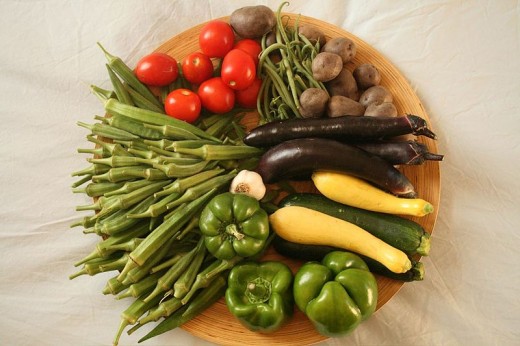
What about cravings?
When you are physically hungry, normal amount of regular food can satisfy you. A craving (based on emotions) involves an intense desire to eat a very particular food; a desire so strong that you may do just about anything to get it. Learn how to tackle cravings.
When you go on a diet, especially frequent ones, you tend to experience cravings more often.
These tips will help you fight food cravings:
- Substitute foods. Grab a dark chocolate bar instead of that cupcake. Dark chocolate has health benefits and will cure that sweet tooth.
- Eat forbidden foods in moderation.
- Portion control. If you are at an ice cream store, buy the smallest size possible. If you feed your craving, trick your mind into believing that you have given it what it wants without giving it too much. Your mind is different from your stomach; it does not know when it’s full It just knows that it’s been fed.
- Out of sight, out of mind. The best way to avoid chips is to not have them in your house.

5. Exercise
Many of the same chemical responses in the brain (mentioned in this article) can be achieved without the junk food. Eating chocolate and falling in love has the same effect on the brain!
Yoga, meditation, exercise, and even walking your dog are examples of activities that increase the levels of endorphins, serotonin, and dopamine. The next time you have an urge to eat a large fries, put in a workout DVD and sweat it off!


What are Natural Highs?
Write down a list of simple pleasures that can replace that negative feeling. The longer you make the list, the better. Try to remember the last time an event or a thing that made you laugh, smile, feel giddy, feel silly, or just gave you that warm fuzzy feeling inside. Instead of eating when you're not hungry, find other ways to keep your self busy.
Whenever you feel a craving or an urge coming up, take this list out and give yourself a natural high.
Here is a sample list from my own journal:
- Taking a drive down a road with pretty scenery
- A phone conversation with a good friend
- Episode of Friends or Sex in the City
- Jogging
- Hiking
- Dancing to Bruno Mar's songs
- Hang out at the beach
- Grass volleyball with friends
- Baking bread, then giving it away
You can overcome oveating!

In conclusion
Overeating comes in different forms and shapes, and tend to stem from younger years. It could be a result of a traumatic life experience and could possible transform to a more serious eating disorders.
If you’re looking for real answers to why you always feel like you need to finish off that whole bag of Doritos, you need to examine the root of the problem.
From this point on, promise yourself that you are going to stick around when the rough patches come up, or when life gets a little bit hard. Let yourself feel that emotion, and then have a game plan to deal with it. You have to be in the moment and as uncomfortable as it may be, when flight-or-fight mechanism kicks in, fight it.
All Rights Reserved
Copyright © 2012 Turtlewoman (Kim Lam)




